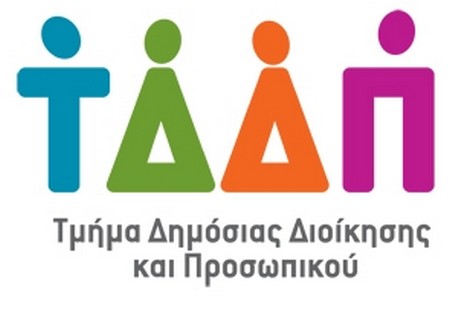|
If you are having trouble viewing this email, open it with your internet browser,
download the PDF version
or contact us.
|
 |
| #34 - April 2021 |
| PDF version - Manage your subscription - Search - Archives |

|
|
vision RH is a newsletter published by the French Directorate General for Administration and the Civil Service (DGAFP). It draws on information sources and reports issued by public administrations, the private sector, international organisations and the press, in several different languages. It aims to provide a broad view of current human resources and civil service initiatives.
|
|

|

|

|

|

|
| Europe: study on the various civil service models | |||||
|
While all European civil services tend to operate within a general legal framework governed by similar laws or regulations, they are still largely shaped by the national context. To get a better understanding of how each country handles different aspects, the Czech government conducted a detailed comparative study on 15 participating EU countries, including France. |
|||||
|
|||||
|
|
|||||

|
|||||
| Italy: the government presents its recovery plan | |||||
|
Because the public service will play an active role in the country’s recovery, while drawing lessons from the crisis, Italy’s new Minister of Public Administration presented his recovery objectives. Two major areas of focus will be adapting the recruitment process to needs and diversifying career paths. Regions, provinces and municipalities will have more autonomy to manage their own positions and staff. |
|||||
|
|||||
|
|
|||||

|
|||||
| France: an innovation hub in Auvergne-Rhône-Alpes | |||||
|
Acting as an incubator for regional government departments, Lab @RCHIPEL has made a name for itself by developing a game (“Stade 2 la réussite”) to prepare prospective candidates for competitive exams. The game is now available as a mobile app with new features. Successful candidates starting in a new position can move on to “Integra-game”, a game to help onboard new hires and promote team cohesion. « This new version promotes personal mobilization, provides assistance and advice and ensures follow-up throughout the preparation »
|
|||||
|
|||||
|
|
|||||

|
|||||

|

|
| Spain: the government launches a Twitch channel | |||||
|
Mindful of the need to adapt its communications to the audiences it’s trying to reach, the Spanish government has decided to reach out to citizens via live-streaming platform Twitch. The aim of the initiative, which is part of the government’s talent acquisition plan, is to start a dialogue by interacting with potential candidates and answering their questions. |
|||||
|
|||||
|
|
|||||

|
|||||
| Canada: public servant-in-residence initiative | |||||
|
Mid-career public servants in Canada will be able to apply for temporary assignments in the country’s universities to conduct research or teach in areas linked to departmental objectives. The government hopes to strengthen ties with universities through knowledge exchange, collaborate on public service recruitment opportunities and provide tomorrow’s workforce with an understanding of how government works. |
|||||
|
|||||
|
|
|||||

|
|||||
| Norway: mapping of transferable skills | |||||
|
Transferable skills – abilities that are useful across different professions and tend to be a mix of different skills – are the ones most sought after by recruiters, yet they often aren’t listed in existing databases. Norway’s Agency for Government Employers decided to address the issue by drawing up an inventory. The exercise will help employers craft better job descriptions and adapt training opportunities accordingly. « We want to collect all the information on transversal skills in order to better prepare for the jobs of the future »
|
|||||
|
|||||
|
|
|||||

|
|||||

|

|
| Denmark: a stride toward pay equity | |||||
|
Even though Denmark is one of the top-ranked countries for gender equality, it still has a gender wage gap, due in large part to outdated classifications of certain professions. The issue was raised in Parliament, which will vote on a proposal to significantly increase public sector pay scales for female-dominated professions, based on equivalent levels of training for similar positions. |
|||||
|
|||||
|
|
|||||

|
|||||
| United Kingdom: a capability framework for senior government analysts | |||||
|
To enhance the profiles of civil servants performing Analysis Function roles in various ministerial departments and help them better position themselves, the UK’s civil service decided to develop a capability framework. There are three levels to the framework, which details the required capabilities and responsibilities associated with each. Another aim of the initiative is to give more visibility to employers. |
|||||
|
|||||
|
|
|||||

|
|||||
| Austria: videoconference document security | |||||
|
While it has been a mainstay of work life over the past year, videoconferencing has presented issues for remote meetings in terms of recording summaries of decisions and securely sharing documents. In Austria, the federal digital services provider developed a solution: participants have their identity confirmed, and once meeting minutes have been electronically approved they can no longer be edited. « The interface we offer is compatible with the majority of existing videoconferencing software solutions »
|
|||||
|
|||||
|
|
|||||

|
|||||

|

|
| France: compilation of new practices to inspire lasting change | |||||
|
The pandemic has introduced new ways of working. To put the lessons learned to good use, France’s Interministerial Directorate for Government Transformation (DITP) has published a compilation of practices designed to inspire lasting change. Organised into eight information sheets across three themes, the document offers ideas on how to reshape how teams work, improve how information is disseminated and develop group problem-solving techniques. |
|||||
|
|||||
|
|
|||||

|
|||||
| Germany: agreement reached on special payment | |||||
|
An outcome of collective bargaining with unions representing contract employees, an agreement to make a special payment to German civil servants has been extended to tenured personnel. All civil servants up to and including middle management will receive a one-time payment in compensation for pandemic-related hardships. Three different amounts (ranging from €300 to €600) will be paid out in inverse proportion to job level. |
|||||
|
|||||
|
|
|||||

|
|||||
| Netherlands: reintroducing social interaction to the workplace | |||||
|
According to a survey of government departments in the Netherlands, stress levels are up from having to work more from home and adapt to new conditions. To improve well-being, the government launched the IIR Vital initiative: regular meetings just to stay in touch, with no specific work objective. Preliminary feedback has been very positive so far. « It can really be a relief to be able to say freely that things are not always going well for you »
|
|||||
|
|||||
|
|
|||||

|
|||||

|

|
| Essilor steps up support for working parents | |||||
|
Striking a healthy work-life balance has been all the more of a challenge since the start of the pandemic, particularly under lockdown – making parent-friendly measures a welcome move from employers. As part of its recent diversity and inclusion agreement, lens manufacturer Essilor has committed to helping its employees fully perform their parental duties alongside their work responsibilities. The following measures, which are more generous than France’s legal minimum requirements, have been introduced: • Paternity leave has been doubled (22 days instead of 11). • Mothers returning from maternity leave can take off one paid day per week for the first two months. • Special accommodations are available to parents pursuing adoption or undergoing fertility treatment. • In the three years after an employee returns from parental leave, any required training must be organised in such a way that travel arrangements and time away from home are compatible with the employee’s family situation. The company has also committed to supporting parents of school-age children, signing a partnership with Campus parentalité Nathan (1), that offers different levels of support for families and a selection of fun and educational resources.
|
|||||
|
|||||
|
|
|||||

|
|||||

|

|
| Public servants in Cyprus to have a new work appraisal and career advancement system | |||||
|
When it comes to performance appraisals in the civil service, it can be difficult to set criteria that are both objective and reflective of reality. In Cyprus, where the proportion of civil servants evaluated as “exceptional” is an unrealistic 97% (and growing), the government decided to make performance appraisals a priority of its reform. After a first unsuccessful attempt in 2016, in early 2020 Parliament voted in favour of a new reform that includes the major amendments sought by Pasydy, the country’s largest union representing public sector workers. The new appraisal system is based on three principles – objectivity, transparency and merit – and will see civil servants awarded a grade between 1 and 10 every year. Although quotas have been deemed unconstitutional, every grade awarded (whether increased, decreased or the same as the previous year) must be thoroughly documented by management and can be appealed to the civil service commission (EDY). .
One of the government’s objectives is to guarantee equitable access to promotions to promote mobility across ministries. The Ministry of Finance decided to connect the two measures by making appraisals the main criterion for applying to a higher-level position. Prospective applicants must now receive a score of 5 or higher for at least 3 years. To ensure balance, other weighted criteria are included (score on a selection exam, recognized professional qualifications, experience). The weightings will depend on the responsibilities of the position. The only situation where appraisals will not be a factor is for positions in category A14 and above (1), i.e. senior management, open to both internal and external candidates, to ensure equal treatment among candidates. Additionally, all managers may request a 180-degree evaluation, where their superior interviews the members of their team. It’s an individual approach that uses co-worker feedback to support career advancement. According to the minister, the primary objective is to put an end to the culture of “coasting upwards”, where promotions are based on nothing more than seniority and agents aren’t incentivised to work at at developing their careers or upgrading their skills.
|
|||||
|
|||||
|
|
|||||

|
|||||

|
|
Share
|
||||
|
||||
| SUBSCRIBE - UPDATE YOUR SUBSCRIPTION - ARCHIVES - RSS - UNSUBSCRIBE |
|
French Directorate-General for Administration and the Civil Service (DGAFP)
Publication Manager: Nathalie COLIN Managing Editor: Nathalie GREEN Editor-in-chief and Autor: Jean-François ADRIAN Layout and graphic design: Jean-François ADRIAN and Aphania. The texts of the publication do not reflect the point of view of the DGAFP
In accordance to the French Act n°78-17 of 6 January 1978 on information technology, data files and civil liberties and to the european General Data Protection Regulation (GDPR), your personal data is stored securely and you are entitled to access, correct and delete them. To do so, you should send an e-mail to (contact-visionrh@kiosque.bercy.gouv.fr) or write to DGAFP: 139, rue de Bercy - 75012 Paris; France.
Reproduction is authorized with mention of the source © DGAFP 2021 / N° ISSN: 2606-7528. |
|
|






